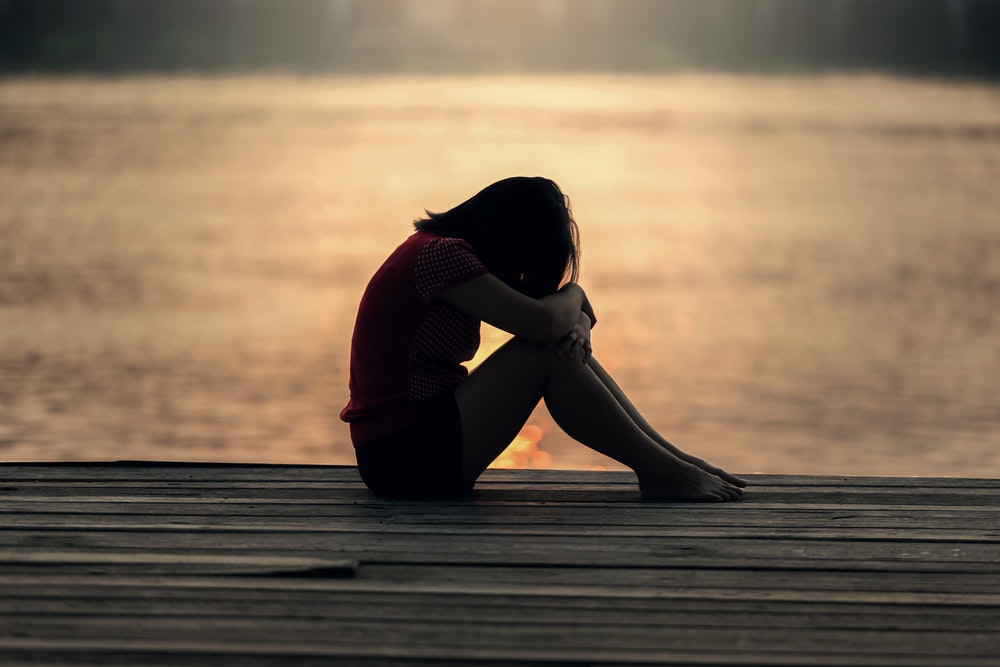This post may include affiliate links to products we think you'll find useful. We may earn a small commission if you buy through these links. Read our affiliate disclosure.
Do you feel like you don’t belong anywhere?
Maybe you feel different, and you can’t make connections with the people or places around you.
Or perhaps it’s an emptiness inside that makes everything you do feel pointless. You’re just going through the motions with no purpose or meaning in mind.
Almost everyone feels like they don’t belong at some point in their lives. But if you don’t fix the problem, you’ll miss out on all the joy and excitement life has to offer.
So how do you overcome this terrible feeling?
Today I’m going to help you understand why you’re feeling like you don’t belong. Once you know the source of the problem, it will be much easier to take positive action and start living your best life again.
What does it feel like to not belong?
To get started, I think it’s helpful to understand what it feels like not to belong.
Everyone’s experience will be different, but hopefully, many of these ideas will resonate with you and make you feel less alone.
1. You feel alienated and different
One of the most common and useful ways to describe feeling like you don’t belong is “alienated.”
Alienation means you feel like you don’t fit in. You’re different from everyone around you and separate from everything going on in your world.
You may feel like people are constantly looking at you or judging you and that there’s something fundamentally wrong with you.
This might be because of your appearance, lifestyle, cultural background, or simply the way you think.
Some of these reasons might be mostly in your head. Still, often they are very real and based on other people’s prejudice, intolerance, or jealousy.
It’s also important to understand that anyone can suffer from feelings of alienation – even people you wouldn’t expect.
For example, I have a close friend who is a tall and attractive woman. On the surface, her life looks perfect, but she often feels alienated. People constantly stare at her, they treat her differently, and she finds it hard to make meaningful connections with men and women.
2. You feel lonely and isolated
At its core, feeling like you don’t belong leaves you feeling lonely and isolated.
The more you feel lonely and isolated, the more you retreat into your own shell. This causes you to miss opportunities to meet new people and build relationships, and the vicious cycle continues.
What’s worse is that you can feel lonely and isolated even when surrounded by other people. In fact, some of the most lonely people live in densely populated cities filled with millions of people.
In western society, we’ve lost the sense of community and connection that previous generations enjoyed. Social media is primarily to blame for this – it promised to bring us together and create connections. But in reality, it’s made our relationships more superficial and driven us apart.
If you feel like this, it’s essential to understand that you’re not alone, and millions of other people share your experience. It might seem impossible at times, but there are plenty of opportunities to build connections if you’re willing to push yourself outside your comfort zone.
3. Everything feels pointless
A massive consequence of feeling like you don’t belong is thinking that everything is pointless and nothing has any meaning.
It’s like there’s a big black hole inside of you that just sucks all your energy away and makes doing anything feel like a waste of time.
For some people, this feeling comes from having no purpose or passions in their life. There’s nothing that makes them excited to want to get up in the morning, and they’re just existing rather than truly living.
But for many others, it’s the lack of personal connections that make everything feel pointless. At the end of the day, it’s the relationships you build with family, friends, and colleagues that really make life rich and satisfying.
Having people you love to share your life and passions with and who make you feel like you belong is one of the greatest feelings in the world.
If you’re missing these fundamental connections in your life, it’s little wonder that everything starts to feel pointless.
4. You feel depressed or anxious
Feeling a lack of belonging can also make you feel depressed or anxious.
Depression is a feeling of intense sadness that lasts for weeks or months and can be extremely difficult to cope with.
On the other hand, anxiety is an overwhelming feeling of fear or worry that doesn’t seem to go away. It often manifests as physical symptoms such as chest pain, rapid heartbeat, and difficulty breathing.
Clinical depression and anxiety are serious mental health conditions requiring professional help. If you’re experiencing either of these things, please don’t hesitate to reach out for professional support.
13 reasons you feel like you don’t belong anywhere
Okay, now that we understand all the main feelings associated with not belonging, let’s look at all the reasons why you might be feeling this way.
I hope this list helps give you some clarity and motivates you to make positive changes in your life.
1. You haven’t found a passion
We’re often told to find our passion and do what we love for the rest of our lives. But what happens when you don’t know what your passion is?
This is a common problem for many people who feel like they don’t belong. They’ve tried so many things, and nothing seems to fit, which leaves them feeling lost and confused.
The emptiness inside can be pretty overwhelming, and it’s easy to get stuck in a negative spiral.
The most important thing to remember is that your passion doesn’t need to be something that changes the world. It just needs to be something that you enjoy and gets you excited to get up in the morning.
In fact, you probably already know your passion, and you’ve just never thought about it in that way before.
Someone recently told me that their greatest passion in life is watching their kids grow up and helping them to succeed. That sounds like a wonderful and fulfilling passion to me!
2. You haven’t found your tribe
Is it possible you’re feeling like you don’t belong because you haven’t found your tribe?
Maybe none of the people in your life view the world as you do, or they have no interest in the things that are most important to you.
Finding your tribe means finding a group of people you really identify with on a fundamental level.
Your tribe is a group of people that think like you, challenge you, and they have the kind of social interactions that excite you and nourish your soul. They give you a sense of meaning and purpose – and most importantly – a sense of belonging.
Your tribe can be dictated by anything that’s deeply important to you. It might be your social, political, or religious beliefs, or it might be a passion for a particular hobby or activity.
3. You don’t value your relationships
It takes shared experiences and lots of quality time to build and maintain meaningful connections with the people you care about.
If you don’t spend the time nurturing your relationships, you’ll never feel like you belong.
The more you withdraw, the more your connections fade away, and your sense of not belonging becomes greater. Eventually, your loved ones feel like strangers whenever you spend time with them.
If the people in your life don’t really know who you are or what you care about, how can they build a connection with you?
4. You want different things than your family and friends
You can’t choose the people you’re related to, and sometimes you just don’t get along with them.
As you grow older and mature, it’s also easy to grow apart from your friends and end up with very different values or views.
These differences can lead to a lot of tension and conflict. You might feel like you don’t belong because your family doesn’t share the same interests as you or because your friends disapprove of the decisions you’ve made in life.
It’s normal to want different things from life than the people around you. The key is finding a way to compromise and maintain those relationships.
Your family will always be there for you, even if they don’t understand or agree with everything you do – so try not to push them away.
And your friends are valuable too, so it’s worth trying to find a way to bridge the gap between your differences.
5. You don’t embrace new opportunities
If you always play it safe and never embrace new opportunities, you’ll never experience all that life has to offer.
Over time you’ll start to feel bored, lonely, and like an outsider, as all the people around you make new friends and make their dreams come true.
Even if you’re scared or nervous, you have to force yourself out of your comfort zone and try something different. It’s the only way to grow as a person and find new opportunities to connect with others.
I’m not suggesting you need to take up adrenaline sports or move to a foreign country. Just try something new and different that you’ve always been interested in.
It doesn’t even matter if these experiences are positive or negative. The point is that everything you try is an opportunity to find a new passion or make a new connection.
The more new experiences you have, the more people you’ll meet and the greater your sense of belonging will become.
Related post: How to get your life together: 37 practical tips
6. You have a lack of self-worth or self-esteem
A lack of self-worth or self-esteem is one of the key reasons people feel like they don’t belong.
Suppose you don’t think you’re good enough, interesting enough, or attractive enough. In that case, it’s going to be very hard for you to make connections with others.
Low self-esteem can lead you to compare yourself negatively to others, making you feel even worse about yourself.
This creates a vicious cycle where you avoid social activities because you feel like you’ll be judged, which in turn increases your feeling of not belonging.
Dealing with your self-esteem problems isn’t easy, but there’s plenty of professional help available if you want it.
Once you learn to love yourself, you’ll find it much easier to find your tribe and get the sense of belonging you deserve.
7. You’re painfully shy
Feeling shy is perfectly normal, but it becomes a problem when it stops you from doing things you want to do.
Shyness can make you feel like an outsider because you’re worried about what people will think of you and how they’ll judge you.
This means that shy people often avoid social activities altogether, making their sense of not belonging worse.
There are plenty of ways to deal with shyness, so if this is impacting your life, please seek professional help.
Once you learn to be more confident in yourself, meeting new people and making friends will become easier.
8. You’re suffering from depression or anxiety
It’s essential to ensure that clinical depression or anxiety isn’t the cause of your feelings of not belonging.
If you’ve been consistently feeling unhappy, depressed, or anxious for an extended period, it’s important to seek professional help as soon as possible.
It’s also worth remembering that depression and anxiety can affect people differently.
The key is to remember that you don’t have to deal with it alone – there are plenty of resources available if you need help.
9. You’re not open-minded
If you’re not open-minded, then it’s going to be difficult for you to feel like you belong anywhere.
This is because open-minded people accept others, even if they disagree with them.
They’re also more likely to try new things and experience different cultures. This opens up a whole world of opportunities for meeting new people and making friends.
If you find that your mind closes off when you meet someone different from you, then it’s time to start working on being more open-minded.
It won’t be easy, but you’ll find yourself becoming less judgemental and more accepting of other people’s points of view with practice.
10. You think you’re better than everyone else
Some people feel like they don’t belong because they believe they’re better than everyone else.
You might think things like “I’m too good for this” or “Why would I waste my time speaking to these idiots?”
When you start thinking like this, it’s easy to become an outsider, even if you don’t mean to be one. And even if you try to hide it, your condescending attitude will quickly give you away.
Some people feel alienated because they are much more intelligent than everyone else. They’re simply on a different intellectual level, and all their social interactions feel boring and predictable.
If this sounds like you, you should try to make friends on your own intellectual level.
11. You have trouble connecting with people
Do you find it challenging to connect with people and form positive and lasting relationships?
Or maybe you feel like you can never really understand what other people are feeling?
If this is the case, then it’s likely that you don’t feel like you belong anywhere. It’s hard to form meaningful relationships with people if you can’t connect with them emotionally.
It’s also worth remembering that humans are social animals. We need close connections with others to be happy and healthy.
If this has been bothering you for a while, consider seeing a professional to discuss your concerns. There are many techniques you can learn that will help you connect better with others.
12. Your values have changed
If your values have radically changed, it’s likely going to have a significant impact on your existing relationships and make you feel like you no longer belong.
This is because the people around you are likely to still have the same values as they did when you first met them.
Suppose your political or religious views have changed or your lifestyle has become entirely different. In that case, it’s natural for you to feel like an outsider.
The best way to deal with this is to be honest with the people around you. Explain why your views have changed and try not to judge them for their beliefs. Most importantly, don’t expect them to change their opinions just because yours have changed – that’s not fair on either of you.
13. You’re comparing yourself to the wrong people
A big mistake many people make is to compare themselves to people they don’t know or people who are completely different from them.
Social media is an excellent example of this.
Comparing your own life to the false image of a perfect life you see on social media can make you feel alienated, different, and unworthy.
The thing is, people on social media are usually only showing the best parts of their lives. They’re not posting about all the times they’ve failed or felt self-conscious and embarrassed.
You’re much better off finding your tribe and building meaningful real-life relationships.



